Investigation Reveals Chickens Crammed Inside Shed on Farm Supplying Nellie’s Free-Range Eggs
Are Nellie’s eggs really free-range? While Nellie’s Free Range Eggs has worked hard to convince consumers that disingenuously named “free-range” hens live happily and peacefully, PETA’s eyewitness footage shows thousands of hens crammed together inside a shed at a farm that supplies eggs to Nellie’s.
Take a look at the way hens really live on a farm that supplies eggs to Nellie’s—which are “certified humane” and sold at stores like Harris Teeter, Walmart, and Whole Foods.
Crammed Tightly Together
Nellie’s claims that the hens whose eggs it sells have “ample space,” but a PETA eyewitness documented that thousands of them were crammed tightly together and that visitors found it difficult to avoid stepping on them. Even though the birds weren’t kept in cages, they still had only a little more than a square foot of space each. Such restricted space prevents chickens from performing natural types of behavior, such as extending their wings, stretching their necks for foraging activities, and properly roosting and resting.
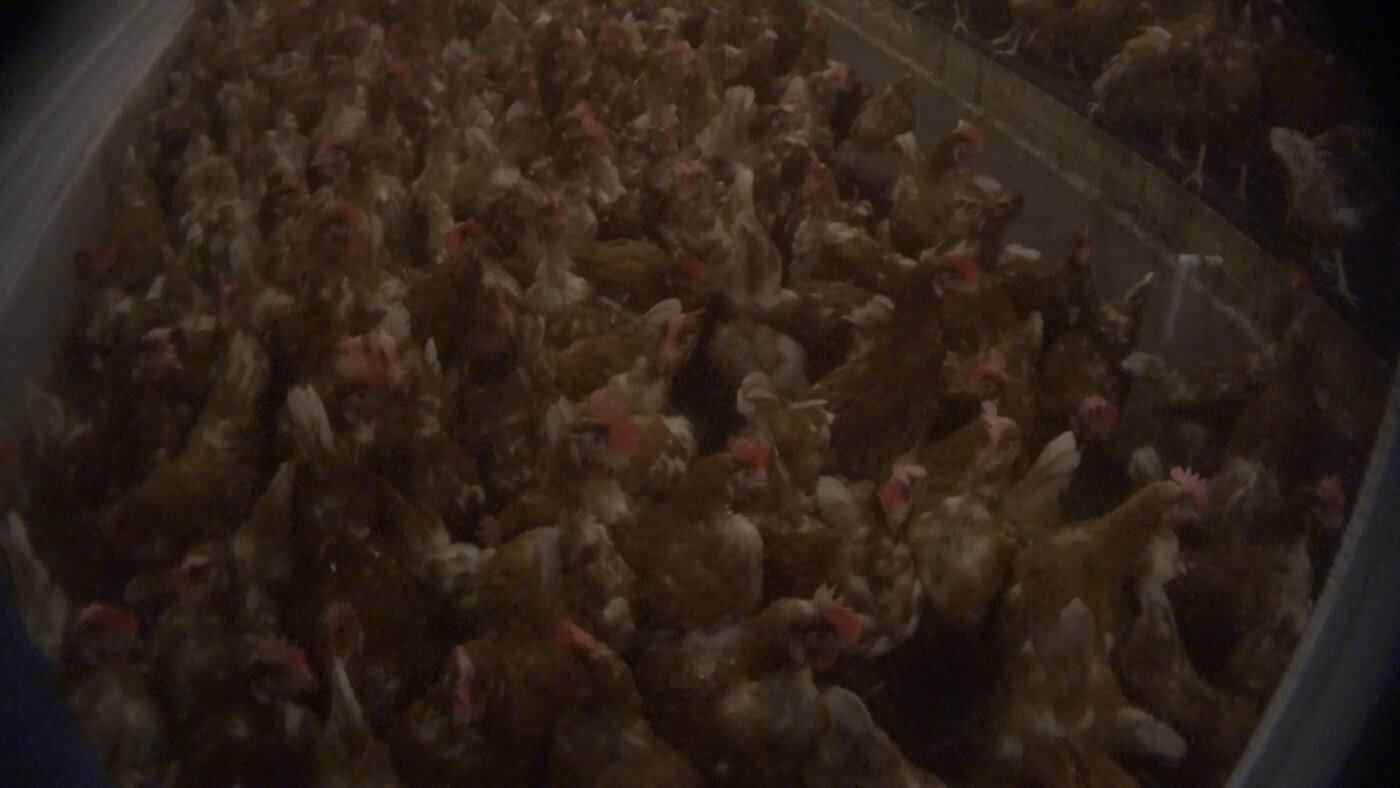
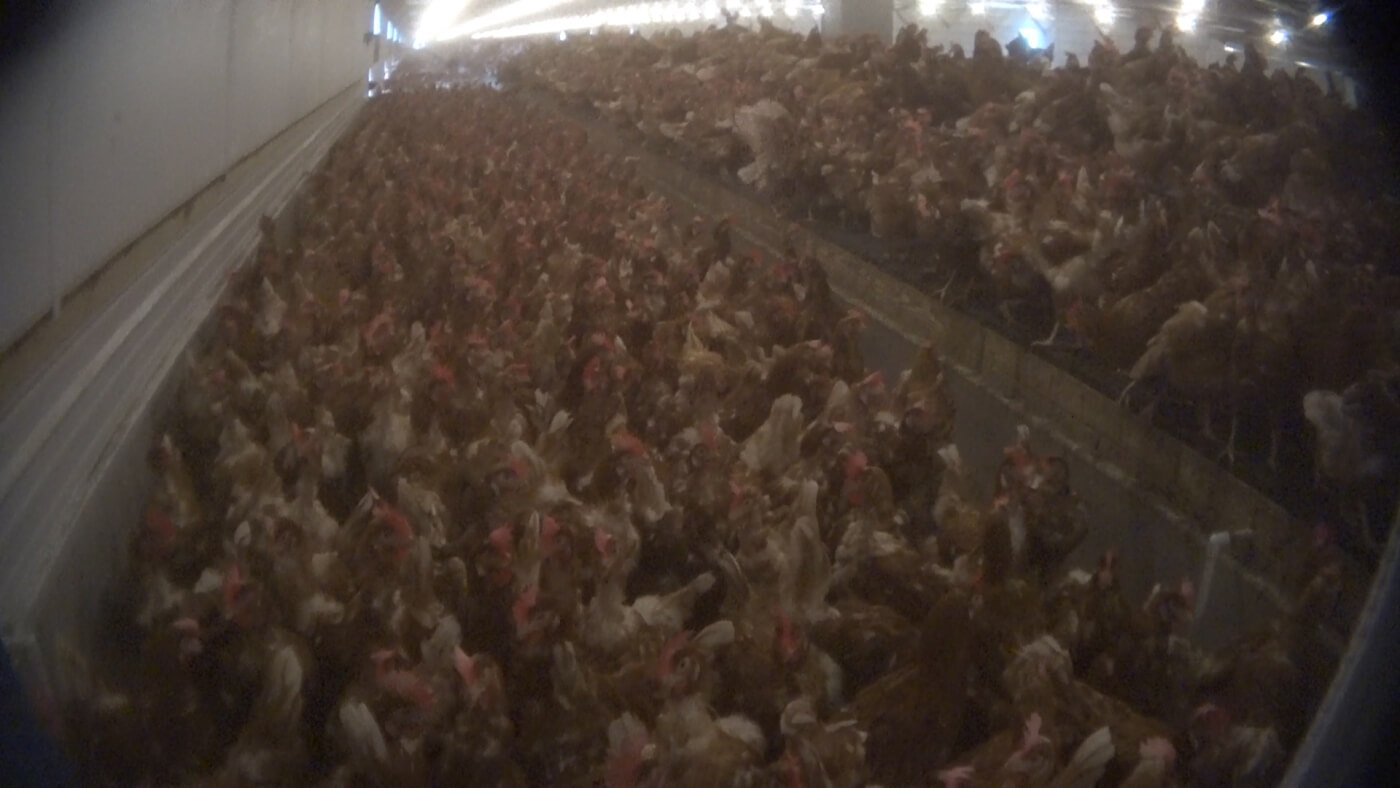
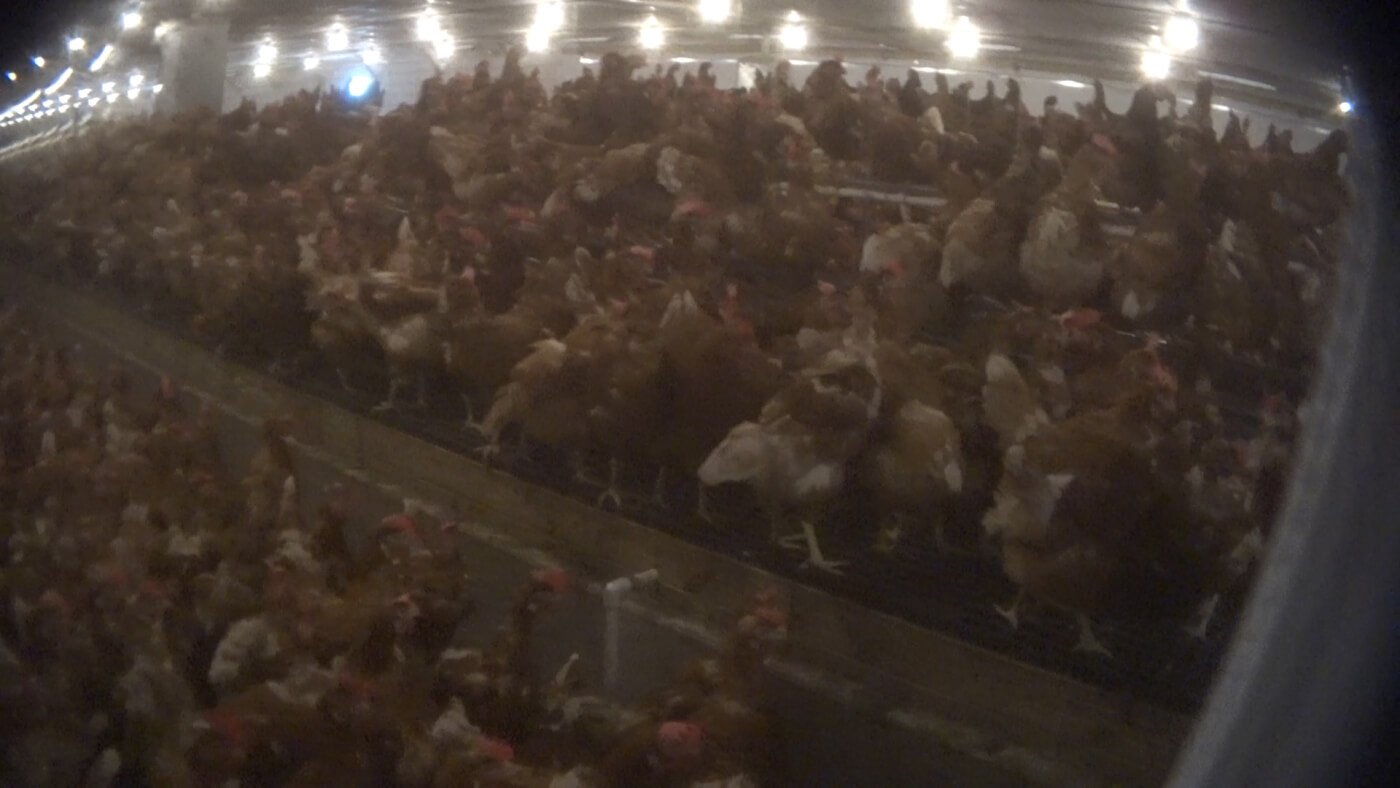
Are Nellie’s eggs really free range? This shed was packed with 20,000 hens, which allowed each bird only about 1.2 square feet of floor space.
No Rolling Pastures
Even though Nellie’s claims that the chickens “roam where they please” and “have easy access to the outdoors,” that access was severely restricted on this farm. Hens could get outside only through small hatches and had to risk pushing past many other frantic or socially dominant birds who were also attempting to go out, requiring them to disrupt their natural pecking order. The farm owner admitted that these hatches are closed at night and not opened until 1 p.m. the next day.
A veterinarian who viewed the footage stated, “In my opinion, these escape portals are ‘window-dressing’ that allows the producer to designate this production system as ‘cage-free’ and ‘free-range‘ without any substantial improvement in the quality of the hens’ lives.”
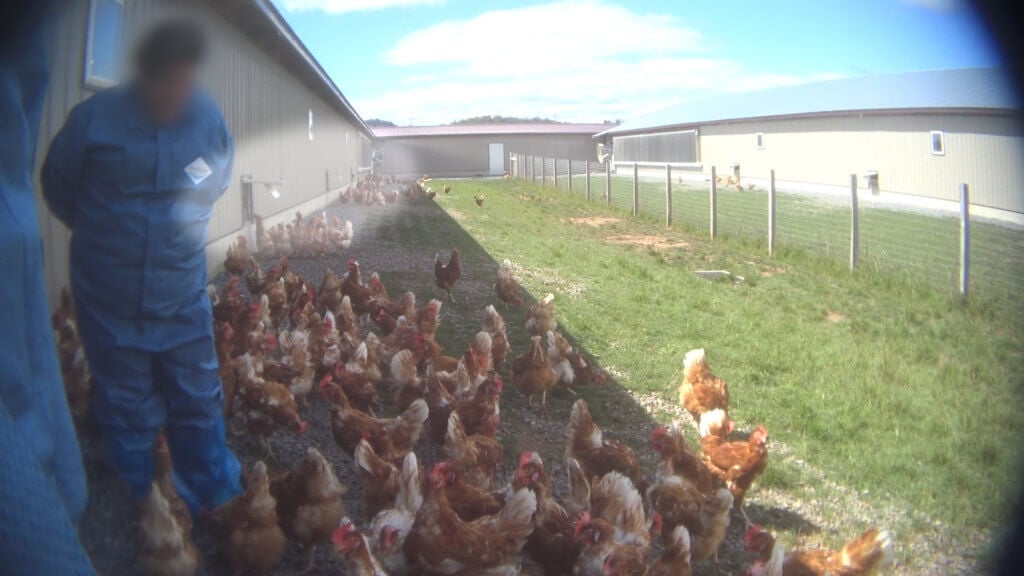
Once outside, hens could roam only on this narrow strip.
Missing Feathers, Beaks Cut Off
Despite Nellie’s claims of using “happy hens,” the tips of their sensitive beaks are cut off to prevent cannibalism among the densely packed, stressed chickens. Despite the mutilation, many hens were missing feathers, which could have been either caused by more dominant chickens or self-inflicted as a result of stress and trauma. A Nellie’s staff member said that hens who are “too picked on” are separated from the flock until they “get feathered back out.”
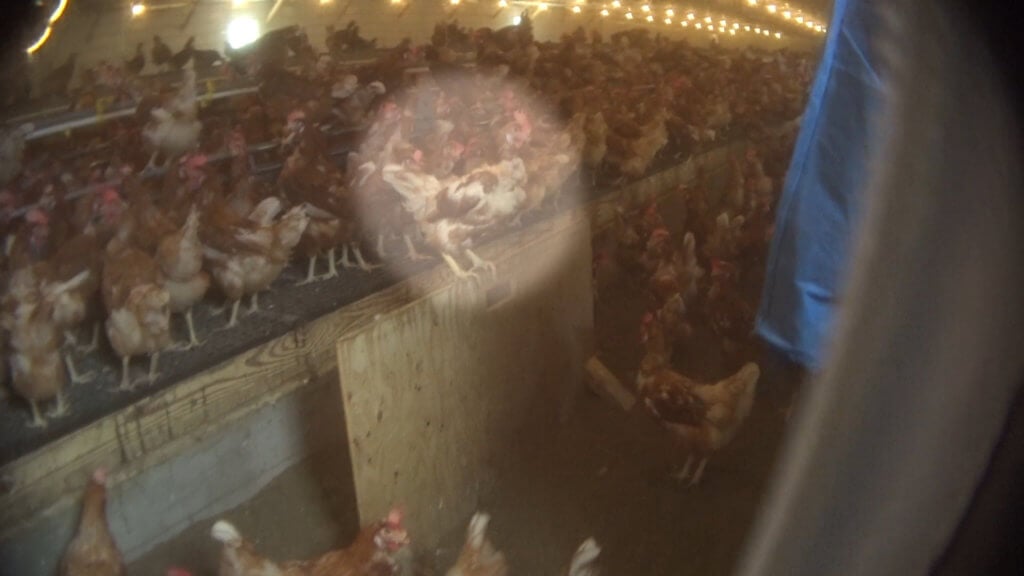
This bird and others were missing feathers, which may have been plucked out by more dominant chickens or by themselves, as a result of stress and trauma.
Devoid of Everything Meaningful
Chickens are inquisitive birds who like to spend their days scratching for treats, taking dust baths, roosting in trees, and basking in the sun. Inside this shed, there was no “range” and the hens had only a narrow strip of dirt to forage or dust-bathe in, which no bird was observed doing. Humane Farm Animal Care (HFAC) “humane” certification requires only that a mere 15 percent of the available floor space consist of suitable litter or substrate for engaging in these innate activities, which the organization calls “comfort behaviors.”
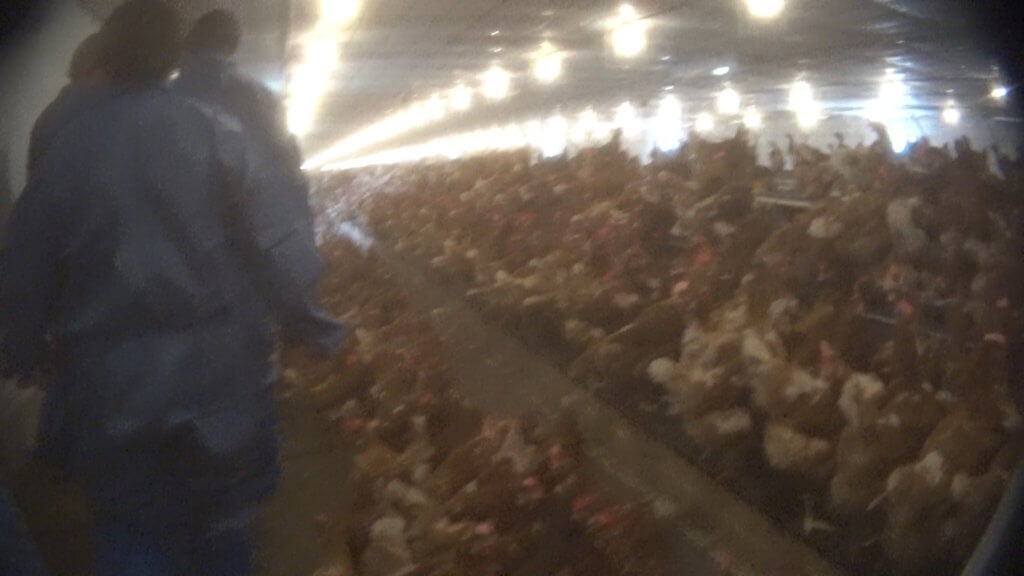
Visitors found it difficult to avoid stepping on the severely crowded hens.
Death for All
A Nellie’s employee told visitors that birds are killed when their productivity drops. Admitting that the hens “deplete themselves of calcium” after laying approximately one egg every day for 13 months, he stated that the fragile eggs that they produce after this “leach into the profits.” He went on to say that at that point, the hens are considered “commercially not viable,” because “feed is expensive.”
“Hens who are used for commercial egg production physiologically cannot sustain the high number of eggs that they are forced to produce,” explains veterinarian Dr. Ingrid Taylor. “Calcium and energy stores are depleted as the chicken’s body tries to compensate for the unnatural demand of constant egg production. This leads to severe and life-threatening conditions.”
Cervical dislocation—separating the spine from the brain—is permitted by HFAC’s “humane” standards as a way to kill hens, and Nellie’s own website indicates that the company obtains chicks from hatcheries that “cull” male chicks. A typical killing method for them in hatcheries is maceration—grinding them up while alive and conscious.
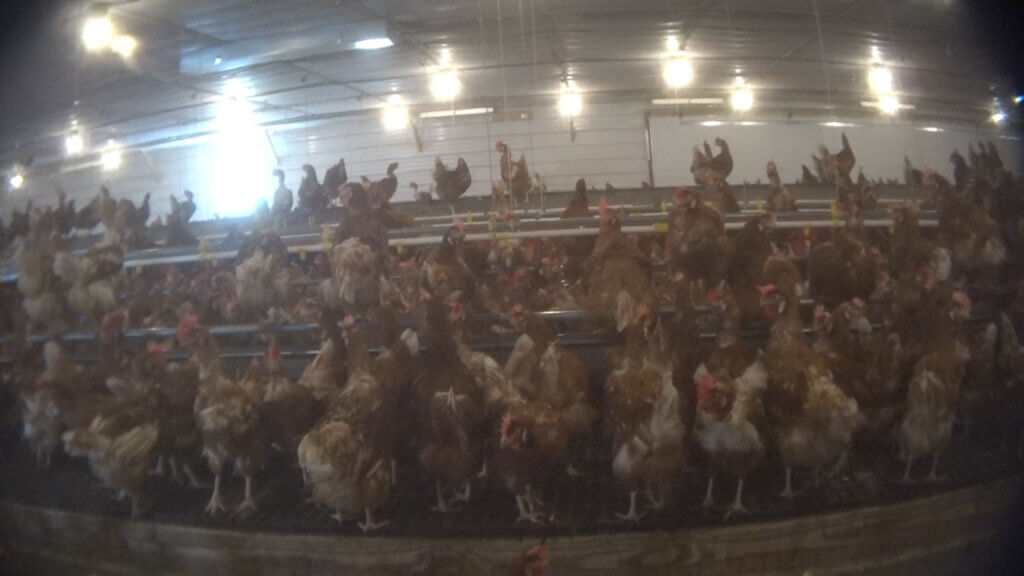
Hens faced constant competition for the coveted perches in the jam-packed shed.
Here's What You Can Do to Help Stop the Suffering of Chickens
When animals are used by a business for profit, they always suffer. The best way to help chickens is to stop eating their eggs and flesh. Thanks to delicious vegan alternatives, it’s never been easier to replace eggs in everyday cooking.
If you feel that you were misled into purchasing Nellie’s eggs by the company’s “free-range” and “humane” representations, please let us know.
Do More: Pledge to Go Vegan
I realize that eating animals causes them unimaginable suffering, destroys the planet, and is bad for my health, so I’m pledging to go vegan!
